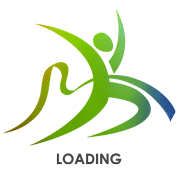
Copyright © 2021 - 2026
Sportsmatik.com. All Rights Reserved

Sports have always attracted the younger generation the most, since ages. It’s widely popular and played among young people. For optimum growth and development and to maintain their athletic performance, young athletes need to consume an appropriate diet. But Alas! The dietary intake of these young athletes follows a major population peer trend rather than public health or sport recommendation. Proper nutrition, in combination with an appropriate amount of physical activity, is of paramount importance for building the future champions. This will help them to achieve various benefits -
A proper diet should include -
It is the key to better performance for young athletes. Balanced nutrition, including macronutrients such as carbohydrates, proteins, fats, and micronutrients such as vitamins and minerals along with fluids in appropriate amounts is essential. The macronutrients provide fuel for physical activity. Micronutrients provide proper defense mechanism to the body.
These are the essential source of energy in the form of glucose for athletes. Carbohydrates should comprise 45% to 65% of the total caloric intake for 4 to 18 years old. Major sources of carbohydrates are whole grains, vegetables, fruits, milk and yogurt.
It helps in building and repairing of muscle, hair, nails, etc., and should comprise approximately 10% to 30% of total energy intake in 4-18-year-olds. Good sources of protein include lean meat, fish, eggs, dairy products, beans and nuts.
These are essential to absorb fat-soluble vitamins such as A, D, E, K, which aids in providing essential fatty acids, protect vital organs and helps in proper insulation. Saturated fats should not compromise more than 10% in the diet. For young athletes of 4 to 18 years, age fats should comprise 25% to 35% in total energy intake. Favoured sourced for fats should be lean meat, nuts, seeds, olive, dairy products and canola oils. Fat from chips, candy, fried foods should be minimized.
It’s important for bone health, normal enzyme activity and muscle contraction. Daily recommended intake of calcium is 1000mg / day for 4-8years old and 1300 mg/day for 9-18 years old. Major sources include - milk, yogurt, cheese, broccoli, spinach and fortified grain products.
Vitamin is essential for proper maintenance of the body. Vitamin D is necessary for bone health and involved in the absorption and regulation of calcium. The current recommendation suggests 600 IU / day for 4-18 year-olds. Sources of vitamin D include milk and sun exposure.
It’s important for oxygen delivery to body tissues. Boys and girls at 9-13 years of age should ingest 8 mg/day, whereas adolescents, 14-18 years of age require more iron up to 11mg to 15mg / day. Iron-rich foods include eggs, green vegetables and whole grains.
|
|
Vegetarian meal |
Non- vegetarian meal |
|
Breakfast (400-500 calories) |
Vegetable sandwich / yogurt, pancakes / herbed toast / avocado butter burrito, Pancakes / whole wheat bread with milk and fruits, Oatmeal with waffle along with smoothies. Low-fat dairy |
Microwave Egg / Chicken/meat sandwich or wraps/ burrito / poached egg. Lean ham, with light cheese. |
|
Lunch (600 -700 calories) |
Vegetable salads, oatmeal, curry, brown rice (one cup) with vegetable curry, Yogurt, Fresh fruits, cut up vegetables and hummus, Quinoa. |
Chicken breast roasted, Meat salad, Roasted fish. Chicken stew. |
|
Dinner (500-600 calories) |
Corn or vegetable salad, skimmed milk with brown bread. Wholegrain or brown rice. White or sweet potato. Quinoa, steamed broccoli. |
White fish, stew, chicken/ham roasted salad, Seared salmon. |
|
Pre-workout and post-workout (50-100 calories) |
Energy bars, banana, toast, smoothie made with protein powder, fruit and milk, Plain yogurt. |
Thin, lean meat slice wrapped in buritto. Boiled eggs. |
 Loading...
Loading...
Kindly log in to use this feature.
